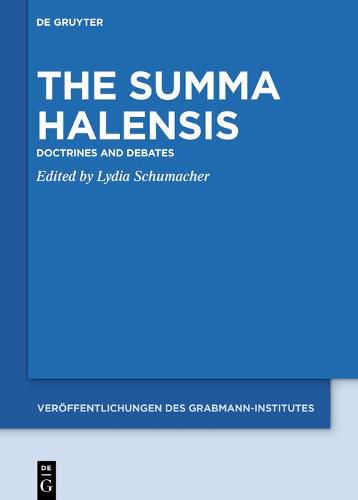Readings Newsletter
Become a Readings Member to make your shopping experience even easier.
Sign in or sign up for free!
You’re not far away from qualifying for FREE standard shipping within Australia
You’ve qualified for FREE standard shipping within Australia
The cart is loading…






For generations, early Franciscan thought has been widely regarded as unoriginal: a mere attempt to systematize the longstanding intellectual tradition of Augustine in the face of the rising popularity of Aristotle. This volume brings together leading scholars in the field to undertake a major study of the major doctrines and debates of the so-called Summa Halensis (1236-45), which was collaboratively authored by the founding members of the Franciscan school at Paris, above all, Alexander of Hales, and John of La Rochelle, in an effort to lay down the Franciscan intellectual tradition or the first time. The contributions will highlight that this tradition, far from unoriginal, laid the groundwork for later Franciscan thought, which is often regarded as formative for modern thought. Furthermore, the volume shows the role this Summa played in the development of the burgeoning field of systematic theology, which has its origins in the young university of Paris. This is a crucial and groundbreaking study for those with interests in the history of western thought and theology specifically.
$9.00 standard shipping within Australia
FREE standard shipping within Australia for orders over $100.00
Express & International shipping calculated at checkout
For generations, early Franciscan thought has been widely regarded as unoriginal: a mere attempt to systematize the longstanding intellectual tradition of Augustine in the face of the rising popularity of Aristotle. This volume brings together leading scholars in the field to undertake a major study of the major doctrines and debates of the so-called Summa Halensis (1236-45), which was collaboratively authored by the founding members of the Franciscan school at Paris, above all, Alexander of Hales, and John of La Rochelle, in an effort to lay down the Franciscan intellectual tradition or the first time. The contributions will highlight that this tradition, far from unoriginal, laid the groundwork for later Franciscan thought, which is often regarded as formative for modern thought. Furthermore, the volume shows the role this Summa played in the development of the burgeoning field of systematic theology, which has its origins in the young university of Paris. This is a crucial and groundbreaking study for those with interests in the history of western thought and theology specifically.